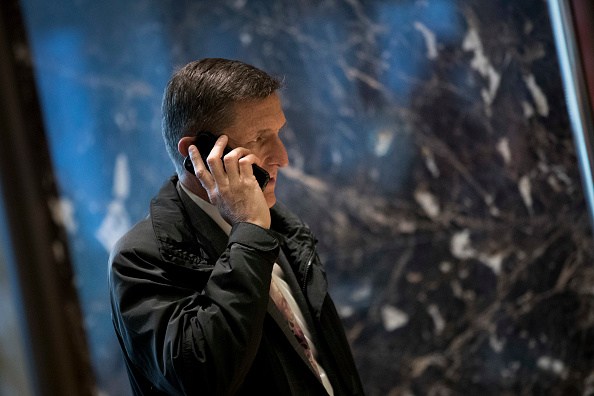The Logan Act and Michael Flynn
When historians write the book on Trump’s presidency, the last thing they will be able to say about his first hundred days is that it was dull. From miscommunications to the press to cabinet level shake-ups, 1600 Pennsylvania Avenue is proving to be the place for drama, especially this week. Move over, Real World Denver, Real World DC is coming in hot and with Trump in the house, there is bound to be a few twists and turns along the way, just ask Michael Flynn.
On Monday night, National Security Advisor Michael Flynn resigned after admitting that, in December, he spoke with Russia’s ambassador to the United States about sanctions and then misled Vice President Mike Pence and other top White House officials about his conversations. Flynn’s actions raised concerns with the Department of Justice (“DOJ”) that he had violated the Logan Act.
The Logan Act, which dates back to 1799, prohibits unauthorized U.S. citizens from speaking to foreign governments about that country’s “disputes or controversies with the United States.” The Logan Act was written to prevent the undermining of the government, which, in this case, concerns the sanctions imposed on Russia by the Obama administration following Russia’s interference in the presidential election of the United States.
“Any citizen of the United States, wherever he may be, who, without authority of the United States, directly or indirectly commences or carries on any correspondence or intercourse with any foreign government or any officer or agent thereof, with intent to influence the measures or conduct of any foreign government or of any officer or agent thereof, in relation to any disputes or controversies with the United States, or to defeat the measures of the United States, shall be fined under this title or imprisoned not more than three years, or both.”
Originally the Logan Act was passed following the unauthorized negotiations between George Logan, a Pennsylvania state legislator and farmer, and France, in 1798. In the history of the Logan Act, there have been only a handful of indictments under the Act as well as a number of judicial references, but there has yet to be a prosecution on the grounds of violating the Logan Act.
Even though Flynn was part of Trump’s transition team and engaged in discussions over sanctions with Russian ambassador Kislyak, he was still a private citizen at the time of those conversations. This makes him guilty of violating the Logan Act, but the ability for the DOJ or Trump’s administration to enforce it is a whole other beast.
The vagueness of the Logan Act makes it difficult to enforce, but it is worth mentioning since the Act has been mentioned before in recent history. In 1984, Jesse Jackson went to Cuba to negotiate the release of a prisoner. At the time, Jackson was a Democratic presidential nominee and there was commentary about his trip that it was a slight to Reagan to prove his foreign policies as ineffective. President Reagan faced the same problem with the Logan Act that Trump and the DOJ face today, the Act is a broadly-worded statute and there could be difficulties in proving violations.
Aside from the inability to prove Flynn violated the Logan Act, there is the question of unconstitutionality, because, according to legal scholars, the Logan Act could be viewed as a violation of the First Amendment right to free speech, which is the standard of the law today versus under the presidency of John Adams. Overall, the chances of the Logan Act being enforced to prosecute and convict Flynn are highly unlikely. However, the Flynn’s legal troubles seem to be just getting started.
Regardless of where you fall on the spectrum of whether or not to revive a 200+- year-old law, the fact remains that Flynn’s engaging in conversations with the Russian ambassador ahead of Trump taking office, not only opened him up to possible blackmail by Russia, but also made a fool out of President Trump and his office and undermined national security. After all, loose lips sink ships and for Flynn, his ship is sinking quicker than the Titanic.
In presidential politics, the resignation of a senior cabinet member within the first month of a presidency is rare, but in Trump politics, it seems this is just business as usual and the show must go on.

